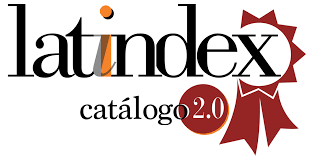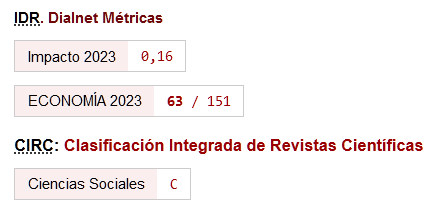The Stakeholder Management: a Reflection on the Challenges Faced by Businesses in the Pursuit of Corporate Sustainability
DOI:
https://doi.org/10.46661/revmetodoscuanteconempresa.2095Keywords:
Grupos de interés, sostenibilidad empresarial, toma de decisión, lógica borrosa, stakeholders, corporate sustainability, decision-making, fuzzy logic.Abstract
The management of stakeholders is becoming increasingly important to the corporate sustainability. The engagement of stakeholders gives legitimacy to the company, generating trust and credibility. The enterprises that are seeking sustainability in their activities must know stakeholders, promote dialogue, meet the demands and expectations, and be transparent in the accountability for their actions. The sustainable company triggers continuous improvement and innovation and seeks for "social acceptance" to achieve success in their activities. In this context, our focus is on thinking about the main challenges faced by companies pursueing sustainable development through effective management of their stakeholders. We further propose the use of flexible tools that aid employers in decision making and help them improve the stakeholder management.
Downloads
References
Aguilera, R.V.; Jackson, G. (2003) The Cross-National Diversity of Corporate Governance: Dimensions and Determinants. The Academy of Management Review, 28(3), 447–465.
Alkhafaji, A.F. (1989) A stakeholder approach to corporate governance: Managing in a dynamic environment. New York: Quorum Books.
Barcellos Paula, L.; Gil Lafuente, A.M. (2009a) Proceso de selección de elementos que contribuyen al crecimiento sostenible de la empresa. In: Proceeding of International Conference and Doctoral Consortium for ISEOR and Academy of Management, held at Lyon, France, (1), pp. 773–788.
Barcellos Paula, L.; Gil Lafuente, A.M. (2009b) Algoritmos aplicados en la gestión sostenible de los recursos humanos. Economic and Financial Crisis: “New challenges and Perspectives”. In: Proceeding of XV Congress of International Association for Fuzzy-Set Management and Economy (SIGEF), Lugo, Spain.
Barcellos Paula, L.; Gil Lafuente, A.M. (2010a) The expertons method applied in the dialog with stakeholders. In: Proceeding of the 2th International Conference on Computer Supported Education (CSEDU), held at Valencia, Spain, 7-10 April, 2010. Vol. I, pp. 402–406.
Barcellos Paula, L.; Gil Lafuente, A.M. (2010b) Algorithm applied in the implantation of practices of eco-efficiency in the companies. Current Development in Theory and Applications of Computer Science, Engineering and Technology. Volume 1, Number 1, pp. 31–48.
Barcellos Paula, L.; Gil Lafuente, A.M. (2010c) Algorithms applied in the sustainable management of human resources. Fuzzy Economic Review. Volume XV, Number 1, May.
Barcellos Paula, L.; Gil Lafuente, A.M. (2010d) The theory of affinities applied to the suppliers' sustainable management. In: Proceeding of the 10th International Conference Artificial Intelligence and Soft Computing, Zakopane, Poland, June 13-17, 2010, pp. 461–467, Part II. Springer Berlin Heidelberg New York.
Barcellos Paula, L.; Gil Lafuente, A.M. (2010e) Fuzzy logic algorithm applied in the corporate sustainability: analysis of an empirical study in the management of suppliers. International Review on Computers and Software (IRECOS). Special Issue dedicated to the Advanced Artificial Neural Network Approaches with Applications to System Management, Vol. 5, number 4, pp. 460–463.
Barcellos Paula, L.; Gil Lafuente, A.M. (2010f) Algorithm applied in the identification of stakeholders. In: Proceeding of International Conference on Modeling and Simulation in Engineering, Economics and Management (AMSE), Barcelona, Spain, 15-17 July, 2010, Vol.3, pp. 257-264. World Scientific Publishing Co. Inc. New York.
Brummer, J.J. (1991) Corporate responsibility and legitimacy: An interdisciplinary analysis. New York: Greenwood Press.
Carroll, A.B.; Buchholtz, A.K. (1989) Business and Society: Ethics and Stakeholder Management. Southwestern Publishing Co., Cincinnati.
Clarkson, M.B.E. (1991) Defining, evaluating, and managing corporate social performance: A stakeholder management model. In J. E. Post (Ed.), Research in corporate social performance and policy, pp. 331–358, Greenwich, CT: JAI Press.
Courtillot, M. (1973) Structure cononique des fichiers. A.I.E.R.-A.F.G.E.T. Vol. 7. Enero, 2–15.
Donaldson, T.; Preston, L.E. (1995) The Stakeholder Theory of the Corporation: Concepts, Evidence and Implications. Academy Management Review, 20(1), pp. 65–91.
Elkington, J. (1998) Cannibals with forks: the triple bottom line of 21st Century Business. Oxford, U.K. Capstone Publishing Limited.
Freeman, R. E. (1984) Strategic Management: A Stakeholder Approach. Pitman Series in Business and Public Policy.
Freeman, R.E.; Evan, W. (1990) Corporate Governance: A Stakeholder Interpretation. Journal of Behavioral Economics, 19 (4), pp. 337–359.
Frooman, J. (1999) Stakeholder Influence Strategies, Academy of Management Review, 24.2: pp. 191–205.
Gil Aluja, J. (1996) La gestión interactiva de los recursos humanos en la incertidumbre. Madrid: Ed. Centro de Estudios Ramón Areces.
Gil Aluja, J. (1999) Elementos para una teoría de la decisión en la incertidumbre. Editorial Milladoiro, Vigo, pp. 247–256.
Gil Lafuente, A.M. (2001) Nuevas Estrategias para el análisis financiero en la empresa, Ariel Economía, pp. 390–393.
Gil Lafuente, A.M.; Salgado Beltrán, L. (2005) Models for analysing purchase decision in consumers of ecologic products. Fuzzy Economic Review, X, pp. 47–62.
Gil Lafuente, A.M.; Salgado Beltrán, L.; Subirá Lobera, E.; Beltrán, L.F. (2006) Teoría de efectos olvidados en el consumo sustentable de productos ecológicos. In: Desarrollo sustentable: ¿Mito o realidad?, pp. 223–240, Ed. Centro de investigaciones biológicas del noroeste, S.C. Mexico.
Goodpaster, K.E. (1991). Business ethics and stakeholder analysis. Business Ethics Quarterly, 1(1), pp. 53–73.
GRI (2006) Guía para elaboración de Memorias de Sostenibilidad, versión G3, Global Reporting Iniciative. [En línea. Consultado 12/02/2010]. Disponible en http://www.globalreporting.org/NR/ rdonlyres/54851C1D-A980-4910-82F1-0BDE4BFA6608/2729/G3_SP_RG_Final_with_cover.pdf GRI (2007) Ciclo preparatorio para la elaboración de memorias de sostenibilidad GRI: Manual para organizaciones pequeñas y medianas, Global Reporting Iniciative, p. 26.
Hamming, R.W. (1950) Error detecting and error correcting codes. Bell System Technical Journal, 26 (2): pp. 147–160.
Hart, S.L.; Sharma, S. (2004) Engaging Fringe Stakeholders for Competitive Imagination. Academy of Management Executive, 18(1).
Hill, C.W.L.; Jones, T.M. (1992) Stakeholder-Agency Theory. Journal of Management Studies, 29, pp. 131–154.
Jawahar, I.M.; G.L. Mclaughlin (2001) Toward a Descriptive Stakeholder Theory: An Organizational Life Cycle Approach, Academy of Management Review 26.3: pp. 397–414.
Kaufmann, A. (1987) Les expertones. Ed. Hermés. París.
Kaufmann, A.; Gil Aluja, J. (1987) Técnicas operativas de gestión para el tratamiento de la incertidumbre, Barcelona, Hispano Europea, pp. 219–234.
Kaufmann, A.; Gil Aluja, J. (1988) Modelos para la investigación de efectos olvidados. Editorial Milladoiro, Vigo.
Kaufmann, A.; Gil Aluja, J. (1991a) Nuevas técnicas para la dirección estratégica. Ed. Universidad de Barcelona. Barcelona, epígrafe 6.
Kaufmann, A.; Gil Aluja, J. (1991b) Seletion of affinities by means of fuzzy relations and Galois lattices. Actas del Euro XI Congress O.R. Aachen, 16-19 julio.
Kaufmann, A.; Gil Aluja, J. (1992) Técnicas de gestión de empresa: previsiones, decisiones y estrategias. Editora Pirámide. Madrid, cap.10.
Kaufmann, A.; Gil Aluja, J. (1993) Técnicas especiales para la gestión de expertos. Ed. Milladoiro, Santiago de Compostela, pp. 151–175.
König, D. (1950) Théorie der endlichen und unendlichen graphen, 1916. Reimpreso posteriormente por Chelsea Publ. Co. Nueva York.
Krick, T.; Forstater, M.; Monaghan, P.; Sillanpää, M.; Van der Lugt, C.; Partridge, K.; Jackson, C. y Zohar, A. (2005) From words to action. The Stakeholder engagement Manual. Vol. 2: The practitioner's handbook on stakeholder engagement. London. Accountability, United Nations Environment Programme, Stakeholder Research Associates Canada Inc.
Lu, Lyy.; Wu, Ch.; Kuo, Tc. (2007) Environmental principles applicable to green supplier evaluation by using multi-objective decision analysis. International Journal of Production Research, 45(18– 19), pp. 4317–4331.
Mitchell, R.K.; Agle, B.R.; Wood, D.J. (1997) Toward a Theory of Stakeholder Identification and Salience: Defining the Principle of who and what really Counts. The Academy of Management Review, 22(4), pp. 853–886.
Mohn, R. (2005) La responsabilidad social del empresario. Galaxia Gutenberg, Círculo de Lectores. Barcelona, p. 90.
Olcese, A.; Rodríguez Ángel, M.; Alfaro, J. (2008) Manual de la empresa Responsable y Sostenible. Madrid: McGraw-Hill.
Orse, Csr Europe y Fonética (2009) Diálogo con los grupos de interés. Guía práctica para empresas y stakeholders. Mayo.
Post, J.E.; Preston, L.E.; Sachs, S. (2002) Managing the Extended Enterprise: The New Stakeholder View. California Management Review, 45(1), pp. 5–28.
Rodríguez, M.A.; Ricart, J.E.; Sánchez, P. (2002) Sustainable Development and the Sustainability of Competitive Advantage: A Dynamic and Sustainable View of the firm. Creativity and Innovation Management, 11.
SAM; PWC (2009) The Sustainability Yearbook 2009. Sustainability Asset Management y PricewaterhouseCoopers. Zurich, p. 13.
Wood, D. J. (1991) Social issues in management: Theory and research in corporate social performance. Journal of Management, 17, pp. 383–405.
Yager, R.R. (1988) On Ordered Weighted Averaging Aggregation Operators in Multi-Criteria Decision Making. IEEE Transactions on Systems, Man and Cybernetics, Vol. 18, pp. 183–190.
Downloads
Published
How to Cite
Issue
Section
License
Copyright (c) 2011 Revista de Métodos Cuantitativos para la Economía y la Empresa

This work is licensed under a Creative Commons Attribution-ShareAlike 4.0 International License.
Submission of manuscripts implies that the work described has not been published before (except in the form of an abstract or as part of thesis), that it is not under consideration for publication elsewhere and that, in case of acceptance, the authors agree to automatic transfer of the copyright to the Journal for its publication and dissemination. Authors retain the authors' right to use and share the article according to a personal or instutional use or scholarly sharing purposes; in addition, they retain patent, trademark and other intellectual property rights (including research data).
All the articles are published in the Journal under the Creative Commons license CC-BY-SA (Attribution-ShareAlike). It is allowed a commercial use of the work (always including the author attribution) and other derivative works, which must be released under the same license as the original work.
Up to Volume 21, this Journal has been licensing the articles under the Creative Commons license CC-BY-SA 3.0 ES. Starting from Volume 22, the Creative Commons license CC-BY-SA 4.0 is used.










